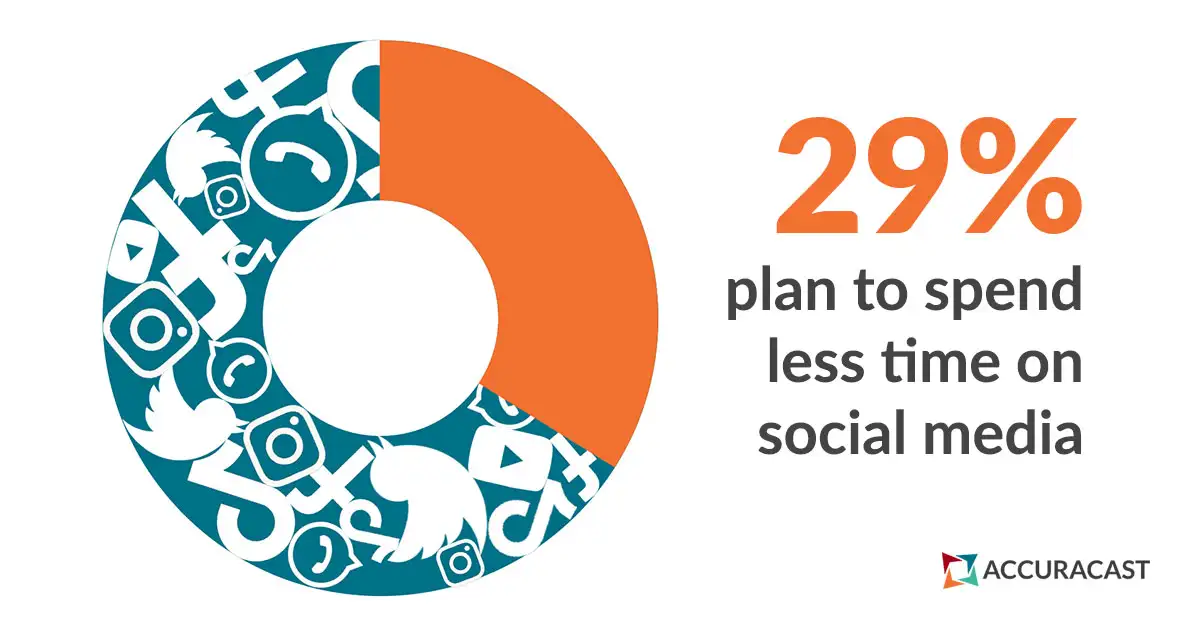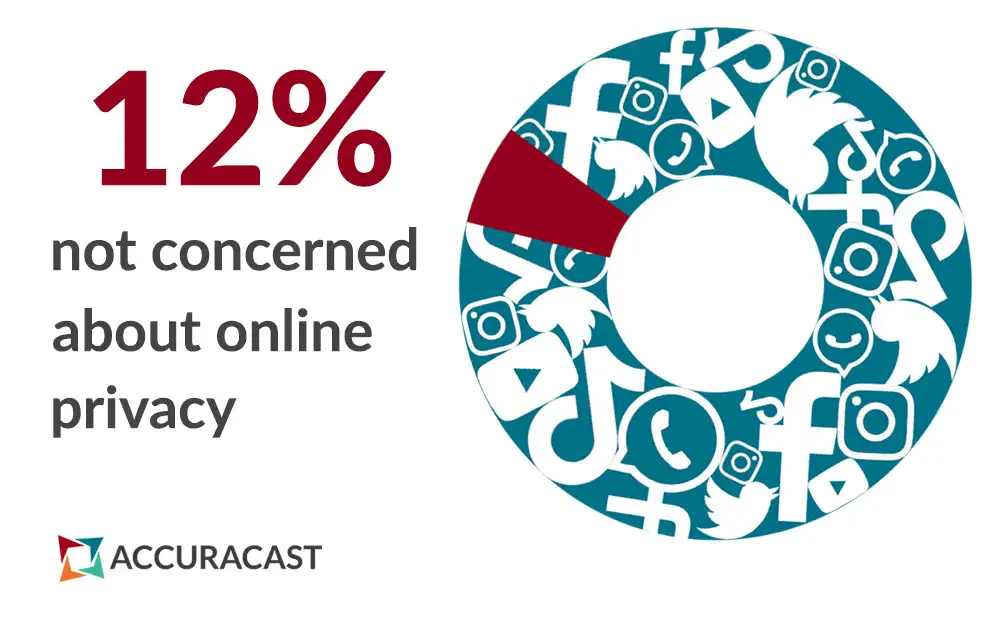A survey commissioned by AccuraCast has found that the recent spotlight on cookies and privacy has raised consumer concerns to the point that a significant proportion are reconsidering how much time they spend on social media.
Nearly 1/3 plan to spend less time on social media
Our survey of 1,001 independent respondents discovered that 29% planned to change their behaviour on social media platforms as a result of their concerns about privacy; their intention is to spend less time on social networks.
The topic of privacy has gained momentum in the popular press since 2018 when the European Union enforced the General Data Protection Regulation (GDPR), and the Cambridge Analytics scandal broke. These and a host of other factors, such as the Netflix documentary, The Social Dilemma, have meant that data privacy has entered the daily consciousness of ordinary people. While the average person’s data is held by dozens of organisations, the primary concern lies with the social network giants; Facebook (including WhatsApp), Google (including YouTube), Twitter, and TikTok.
According to Google itself, searches for “online privacy” increased by more than 50% between spring 2019 and spring 2020.
An indicator of things to come?
MD and Founder of AccuraCast, Farhad Divecha, says: “With over 53 million social media users in the UK in 2021, these results might not be cause for concern for social media providers and advertisers right now, but it should be a warning, and quite possibly an indicator of things to come.
“We know that consumers are becoming more and more privacy and data savvy – this will only continue. What we should be seeing next is how social media platforms will respond, so as not to scare away consumers and also retain advertisers.
In 2019, advertisers in the UK spent £3.59bn on social platforms
“In 2019, social media advertising spending in the United Kingdom stood at £3.59 billion and accounted for a huge 23% of the total digital ad spend in the country. If these privacy concerns aren’t addressed and dealt with now, stricter government regulation might be imposed, which would be bad for both advertisers and the networks. To avoid losing out in the long run, Facebook, Google, Twitter, TikTok, and other networks need to listen to their users’ concerns about privacy and act in good faith now.”

Statements published by the likes of Google and Meta (Facebook’s parent company) explain how their platforms use personal data and how it can be controlled by the individual. These platforms have also started restricting the availability of detailed targeting options for advertisers; from this month, advertisers on the Facebook platform will no longer be allowed to target people based on what Meta deem to be sensitive topics such as politics, race and sexual orientation.
Good intentions
Whether these efforts will be sufficient to calm public concerns, and whether people will in fact spend less time on their social media accounts, remains to be seen. Despite good intentions, long-held habits are rarely changed without significant effort, particularly when it comes to screen time, which has been labelled ‘addictive’.
However, the survey results, in which just 12% said they were not concerned about online privacy, should sound a warning bell to the social giants who risk tainted public opinion and, more importantly to them, eroded advertising revenues.
Depending upon just how many social media users decide to spend less time in their accounts – or move away from them altogether – as a result of privacy concerns, the impact on the companies could vary widely. The way the social giants react to surveys like ours will dictate if the impact will be inconsequential or catastrophic to their revenues, or something in between. If they don’t address privacy and adopt more open communication methods, they almost certainly face discomfort via their users, or government regulation.
About the Author
Dids was a digital marketing consultant at AccuraCast













